Pilot Online College
Background:
The California Community Colleges State Chancellor’s Office published Memo FS22-11 in 2022 that summarized the background and research on best practices that have been shown to be effective in supporting students in achieving their educational goals. Specifically, the memo noted that “decades of research show that shorter academic terms…. can translate into increased academic success.” The memo argued that “community colleges need to explore new ways of offering courses to meet student needs” and encouraged college districts to consider this as a strategy to bring back lost COVID-19 FTES.
In recent years, the Yuba Community College District (YCCD) has been experiencing a downward trend in student enrollment, and this trend has been exacerbated by the COVID-19 pandemic. To address this challenge, the Chancellor directed the colleges and District Services to gather input from their constituency groups and develop recommendations to address the enrollment declines and related fiscal impact. A District Consultation Council (DC3) working group was formed to analyze, synthesize, and prioritize recommendations from the college and District Services reports and the group identified twenty-four (24) recommendations, several of which focused on increasing enrollment, persistence, and completion. Recommendation #8 was to increase fully online programs and courses/develop and market an online college. This report was presented to the YCCD Board of Trustees in June 2022, and the Chancellor took forward finalized priorities to the Board of Trustees in July 2022.
Pilot Program Overview:
Yuba Community College District has identified two high-demand programs that will be offered fully online (asynchronously) to capitalize on changing student modality preferences and to support the enrollment of nontraditional adult learners. As an example, adults aged 24-54 in the North, Far North, and Upper Sacramento regions without a college degree exceed the state average by 14% and have fewer educational institutions within driving distance. Already experiencing potential cost, proximity, and access challenges, many adult learners in rural communities also contend with childcare needs, work, and family commitments that make traditional higher education face-to-face delivery a barrier to completing their education.
For our traditional learners, the COVID-19 pandemic has increased the demand for accelerated pathways, new delivery, and service models to re-engage with adult learners and provide a way for them to achieve their educational goals.
The fully online Business and Psychology ADT pathways will offer 9-week program offerings that will ensure timely student progression. The program is focused on increasing completion and transfer through improved access and affordability. These high-demand program pathways include all general education and graduation requirements in a fully online modality. The district is working to support the development of low- or no-cost course materials for all courses offered in the pathway.
Student services will be offered online to ensure a seamless experience from application through graduation. The district will create a single point of contact for students interested in this program. The project will also create marketing resources to promote fully online programs.
The pilot will be funded by District Innovation Funds.
